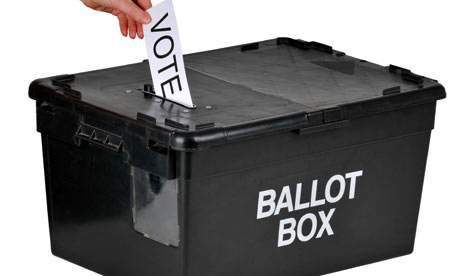The deadline for voter registration is extended for the EU Referendum
What does the extension of the deadline for registration of voters onto the electoral roll in preparation for the EU Referendum tell us about the British Political Establishment?
The first point to make is that the mere fact that they wanted to extend the deadline shows the extent to which the British Political Establishment is desperate about the increasing possibility that the overall UK vote will be for Brexit. They think that the people who have left it until the last minute to register are not the sort of people who will vote for Brexit – bear that optimistic point in mind!
Less encouragingly the date for the deadline for registration is actually written into the electoral legislation and the fact that there could even be an Establishment fix, in which the law under which the election is conducted could be changed whilst the referendum is actually ongoing, is the most appalling indicator of just how far the British/EUish Establishment will go to the fix the outcome of this Referendum.
What this means is that those of us who are in favour of Brexit really must be on our guard for an Establishment fix. For instance, we do need volunteers to go to the opening of the postal ballots and check that there are no shenanigans and that the boxes are then sealed and have remained sealed when the count begins.
Even that does not offer a full guarantee, as was demonstrated by someone I knew at university who became a senior Labour Party activist. He was amused to tell me that on one occasion when the local party had selected a candidate who the central party thought was unsuitable. They had managed to get the election re-run. So he was sent to oversee the election with, as he put it:- “with two ballot boxes, one for people to vote in and the other with the right result in”!
There is also another implication to be drawn from the sudden change in law. This is the very fact that there really is such a thing as a British Political Class which can and will collude where its interests are threatened. We saw this very clearly in the Scottish Independence Referendum where there were also shocking levels of misbehaviour and improper and undemocratic manipulation.
One good example that came out at the time was this one I did a blog article. You can find the link here >>> http://robintilbrook.blogspot.co.uk/2014/12/proof-of-media-collusion-at-heart-of.html


